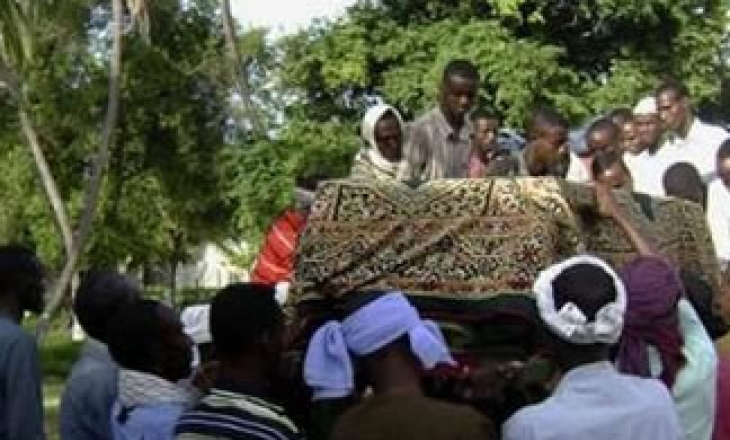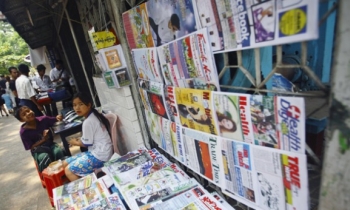Suspected Islamist insurgents shot dead a leading local journalist working for the BBC in southern Somalia on Saturday. A Reuters witness said gunmen confronted Nasteh Dahir Farah outside his home in the port of Kismayu before shooting him in the chest and stomach. He died soon afterwards in hospital.
A group of armed men fired several shots at Farah as he made his way home from work, Paris-based Reporters sans Frontières (RSF) reported. He was taken to hospital but died ten minutes after he was admitted. His killers have not been identified.
Farah, 26, who worked for several foreign media including the BBC, had received several death threats. He was also the vice-president of RSF's partner organisation in Somalia, the National Union of Somali Journalists (NUSOJ).
Somalia is Africa’s deadliest country for journalists. Eight were killed there last year.
“We share the dreadful grief that has struck the family and colleagues of Nasteh Dahir Farah. The list of dead just goes on growing while the authorities take no steps to curb the violence which targets journalists," RSF said. “This apathy is disgraceful given the fact that the Somalia is Africa’s deadliest country for journalists,”
Nasteh Dahir Farah was elected vice-president of the NUSOJ in 2005. “No-one is protecting Somali journalists, who have become targets for all the armed groups”, the organisation’s secretary-general, Omar Faruq Osman said. “We will not stop our work because of these criminals,” he added.
“Once again a leading journalist has been struck down in appalling circumstances,” said Jim Boumelha, International Federation of Journalists (IFJ) President. “It’s time for action not words from governments to address the crisis in Somalia and to protect our people.”
Omar Faruk Osman, a member of the IFJ Executive Committee and President of NUSOJ, said Farah was killed by an unidentified group and no-one had claimed responsibility. “We are convinced he was targeted because his life had already been threatened,” he said. He said that the lack of any viable governing authority in Somalia meant that there is no effective rule of law. “No one is protecting journalists.”
Three days ago the union had appealed to the UN Security Council to recognise the crisis facing Somali Journalists, whose lives are regularly threatened.
“There could not be more brutal nor convincing evidence of the need for an urgent international response,” said Boumelha. “We mourn the loss of a brave union leader, but we also demand action to secure the safety of all of our colleagues in Somalia.”
In January journalist Hassan Kafi Hared, 36, was killed after remote-controlled mine exploded inside a road in Siyad Village of Northern part of Kismayu. Two doctors working for Medecins Sans Frontieres and their Somali driver also died. The killers have not been found.










